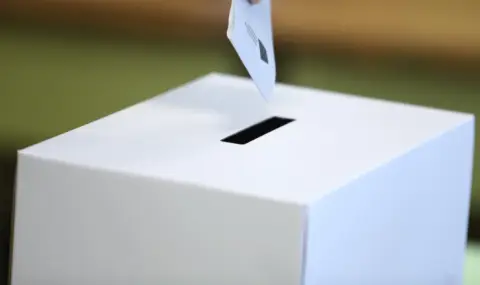The record low voter turnout during the extraordinary internal parliamentary elections and the European Parliament elections shocked observers and the Bulgarian public. Many politicians and analysts raise the question of the legitimacy of the elected parliament and the future of democracy in our country. And indeed, if 8-9 percent of those entitled to vote voted for the winning party, it obviously does not represent the majority of the Bulgarian population.
The low voter turnout is explained by the absence of political parties reflecting the interests of a significant part of voters, political scandals, corruption, etc. None of these explanations is satisfactory.
This comments on in. "Labor" Prof. Gancho Ganchev.
We should also not forget that not voting is legitimate voter behavior. This does not invalidate the election. Those who did not vote voluntarily renounce their right to vote, thereby transferring the responsibility to those who did vote.
Since human behavior should still have a reasonable explanation, we must ask ourselves whether non-voting is rational and understandable from some point of view.
Standard economic theory assumes precisely that voting is irrational. For any individual, voting is a waste of time and resources. On the other hand, if everyone votes, then each individual vote does not change the result. This means that each voter spends certain resources in return for which he receives nothing, since the individual cannot change the political configuration.
However, these considerations lead to a paradox. If no one votes, but only one individual exercises his right to vote, then it is he who decides the outcome of the vote, since society has voluntarily transferred this opportunity to him.
This result coincides with the conclusions of the collective decision-making theory of the Nobel laureate Kenneth Arrow. He proves mathematically that, with sufficiently diverse public preferences, a decision can only be made in a dictatorial way, i.e. with the preferences of one individual, called a dictator, being imposed on society as a collective decision. However, Arrow does not explain how society can be forced to accept the dictator's decisions.
However, let's return to our voter, who has no rational reason to vote. Let us consider the utility of voting for the individual as a function of the relative share of voters. If we have 100% voting and a large number of voters, say millions, the benefit to the individual of voting is zero and even negative, since he spends resources without getting anything, since he does not influence the outcome. This is so, regardless of any promises about the importance and social responsibility of voting.
However, with the decline in voter turnout, things are changing. Each individual vote objectively has more and more weight precisely as a result of the non-voting of a part of the voters. When turnout is zero, every potential vote is decisive and determines political outcomes for society. Then anyone can become Arrow's infamous dictator. At this point, the utility of voting is endless. Therefore, the utility function of the individual voter's vote increases from zero to infinity.
At the same time, the costs and negative emotions of voting are a kind of floating but still finite quantity, and these costs do not depend on the share of voters and represent a straight line that shifts up and down depending on the feelings of the voters. As a result, at some point the utility and negative utility curves from voting intersect and this determines the real participation of the average voter in the electoral process, i.e. we have some optimum where utility and negative utility are equal.
Negative utility, in turn, is determined by the cost of money and time to vote plus the monetary equivalent of the voter's disgust with the political parties involved. The benefit is the monetary equivalent to the individual of enforcing a particular political agenda. Of course, the negative utility or conditional costs, as well as the expected utility for individual individuals are different, but the averaged expectations determine the actual participation in the electoral process.
In this line of thought, the June 9 election marks a definite turning point in the electoral process. This is related to the fact that the low voter turnout sharply increased the usefulness of voting as an opportunity for an individual, in real coordination with other related individuals, to really influence the results of the electoral process.
Indicative in this sense is the emergence of the Velichie party and its entry into parliament, which was not foreseen by any sociological agency.
The winner in these elections is neither GERB, nor even the leadership of the Velichie party. The real winner goes by the strange name of Kiro Breaka. It is he who is a kind of personification of Arrow's dictator. This is because the followers of this internet influencer proved to be enough to change the political configuration in Bulgaria. Without organizing on the Internet, on the one hand, and without the low voter turnout, on the other hand, the Greatness phenomenon would not have been possible.
This phenomenon shows that we are entering a new stage of the political process in Bulgaria, when relatively small interacting decentralized groups can really influence the political configuration.
The situation can develop in two directions.
First, if distaste for political parties grows and people continue to vote less and less, the Greatness phenomenon will multiply. The end result is the dictator in question, defined by Kenneth Arrow, who, unfortunately, resembles the nightmarish figure of Adolf Hitler.
The second option is significantly more optimistic. The Greatness phenomenon shows something positive, namely that individual votes and the decentralized coordinated vote of groups of people can actually affect election results. This should lead more voters to change their behavior and try to redefine the country's political agenda by voting.
Therefore, our voice matters! Which trend will prevail remains to be seen.
